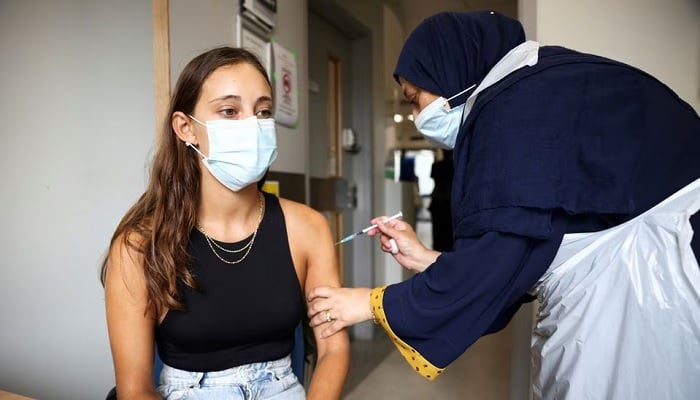[ad_1]

The decision of whether to receive vaccinations in the left or right arm appears to hold significance, a recent study shows. The choice of arm matters.
A study conducted in Germany reveals that individuals who opt to receive all their vaccine doses in a single arm exhibit a more robust immune response compared to those who alternate between arms.
This research was featured in a recent publication in the eBioMedicine journal, a reputable peer-reviewed periodical affiliated with The Lancet Discovery Science.
The study’s observational nature involved an examination of immune reactions among approximately 300 individuals who had not contracted COVID-19.
These participants were administered two doses of the Pfizer-BioNTech COVID-19 vaccine between the months of March and September 2021.
The participants were divided into two groups: one received both doses in the same arm, while the other had the second dose administered in the opposing arm.
The analysis, conducted two weeks following the vaccinations, revealed that a specific type of immune cell known as “killer T cells” was detected in 67% of individuals who had received both injections in the same arm.
In contrast, this response was observed in only 43% of those who had the doses administered in different arms.
The study’s authors posit that the preference for sequential shots in the same arm could be attributed to the shared lymph nodes being targeted by the vaccines.
This targeted approach enhances the activity of these lymph nodes, leading to heightened production of immune cells that combat infections. While disparities in the aforementioned cells were identified, a corresponding trend was not discerned in spiked protein antibodies.
Although the study’s scope is preliminary and its sample size modest, it underscores the potential for diverse vaccine responses extending beyond conventional factors such as age, gender, and medical conditions.
Dr Ofer Levy, a specialist in pediatric infectious diseases and the director of the Precision Vaccines Program at Boston Children’s Hospital, highlights how this research opens up new avenues for understanding individual variations in vaccine reactions.
“This speaks to precision vaccination in the sense that everything matters,” said Levy, who is not affiliated with the study.
More research and data is needed but he says the study’s findings could have implications for vaccines outside of COVID-19 and help standardize how routine vaccinations are given.
“We need to be precise about how we discover, develop and deliver vaccines,” Levy said.
[ad_2]
Source link

